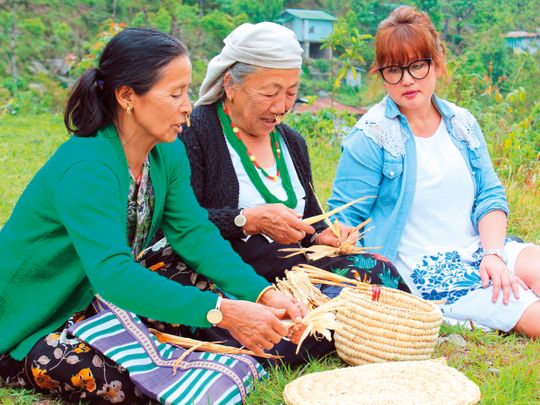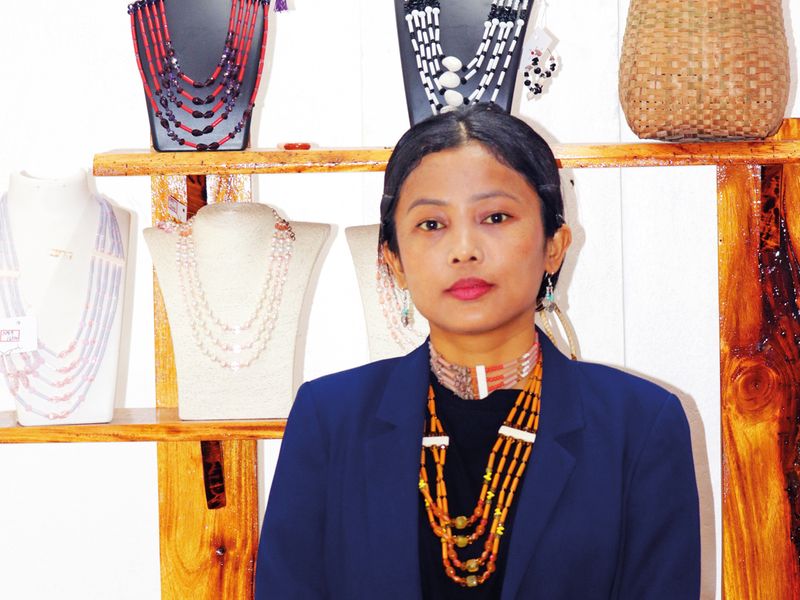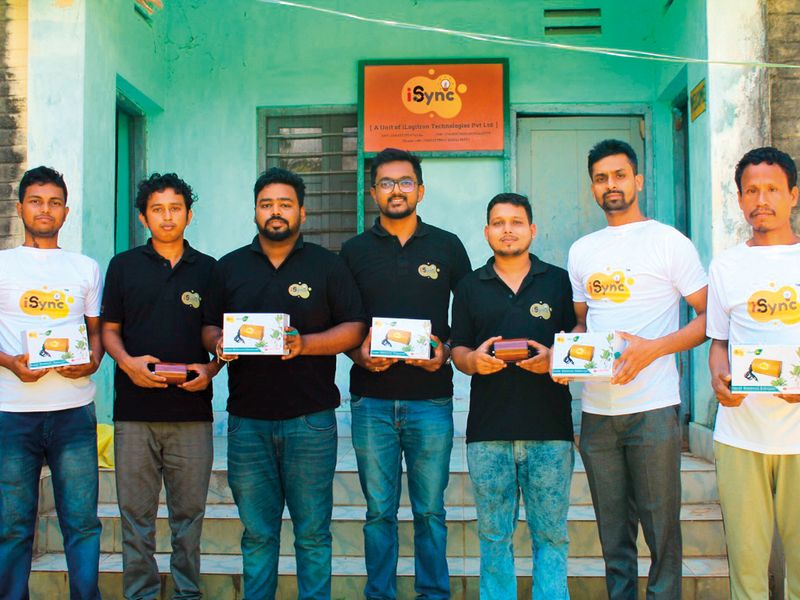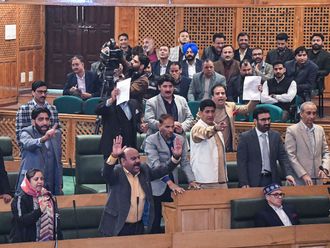
The potential of India’s culturally distinct and geographically isolated north east as a growth market for business opportunities has largely remained untapped. However, a new generation of entrepreneurs is rising to the challenge and changing the narrative of the region with unique ideas, creativity and determination, translating opportunities into profitable, sustainable enterprises. Four business founders discuss how they are constantly innovating to address the unmet needs of the region while celebrating the rich and diverse cultures and traditions of the local communities.
Chimib Ongmu Bhutia, Cas Collective | Sikkim
Chimib Ongmu Bhutia is proof that entrepreneurship that supports environmental causes often makes smart business sense. A graduate of the prestigious National Institute of Fashion Technology (NIFT) Kolkata, Chimib launched Lagstal Design Studio and Cas Collective in Gangtok, Sikkim, with the sole desire to reconnect with nature. Using the power of design, the brands promote sustainable architecture and products.
Hailing from a middle class farming family in Sikkim, Chimib has always believed in businesses that promote sustainability, reduce consumption of non-renewable resources and minimise waste. “We, at CAS Collective, use natural and non-toxic materials to create soulful residential, commercial and cultural spaces that are in harmony with the environment. Our architecture is raw and imaginative, guided by art, curiosity and self-expression. This is how genuine magic is created.”
The idea behind launching these ventures was to promote a green lifestyle, while protecting Sikkim’s ecosystem. “Bamboo is a sustainable resource and it features in all our products such as furniture, incense sticks, treated bamboo columns and lifestyle products and the waste is also recycled. We are also into interior designing with a sustainable approach. We are working on some prototypes of products that are tailored for international markets.”
Cas Collective is actively generating employment opportunities in Sikkim. “This is more than just a business for us. We are focused on the economic empowerment of the local community, while identifying and enhancing skills of artisans, providing them financial aids and motivating them to be ambitious,” she adds.
Semada Marak, Seven Cherri | Meghalaya

While working for a start-up in Goa, 34-year old Semada Marak began learning the basics of jewellery making during her free time.
“I enjoyed the process of creating jewellery inspired by the tribal designs of the north east and soon started posting pictures of my craft on Instagram, which helped me get noticed. Sensing demand for handcrafted jewellery, I launched Seven Cherri in 2017,” says Semada, who hails from the town of Tura in the Indian state of Meghalaya.
“I needed a quirky and unique domain name for my website. Seven represents the seven sister states of the north east and my venture is the single cherry that unites all of them,” shares the enthusiastic entrepreneur, who has a degree in engineering from Goa Engineering College.
One of her biggest achievements as an entrepreneur? “Meghalaya has so much to offer to the world when it comes to unexplored art and culture. Through our creations, we have contributed a bit in putting Meghalaya on the global map, while touching lives of many artisans from the states,” says Semada.
Seven Cherri’s impact on the local community in the past five years has been remarkable. Giving an example, she says, “I once worked with a bamboo craftsman, who had to walk for three hours to get to the main road to deliver my orders. He was from a remote village in Meghalaya where nature provided for everything. His efforts touched me – it’s inspiring to see people promoting sustainability through their craft.”
However, this entrepreneurial journey hasn’t all been plain sailing. Semada has had to overcome barriers at almost every turn and put in long hours to get her venture off the ground. She credits Meghalaya government’s Prime programme that looks at enterprise promotion and incubation in a holistic manner, for helping her manage the initial start-up challenges.
“I had no idea about sourcing funds or running a business. I faced issues in reaching out to the right customers. However, trainings organised under the Prime programme helped me develop many of these essential business skills.”
Seven Cherri’s community on Instagram now exceeds 5,800 and her customers are spread all over the country. Semada has plans to expand the business to international markets in a couple of years.
Debasish Dhar, iLogitron | Tripura

iLogitron was a dream of two students from Tripura to explore the world of entrepreneurship. “While we were slogging in the corporate sector, we noticed that people living in urban cities were looking for solutions to take care of their indoor plants while they were at work and on vacations” says Debasish Dhar, co-founder of iLogitron.
After more than two years of research and development, iLogitron launched its unique IoT-based plant watering device, iSync-SmartAgri, earlier this year, which enables people to water their plants remotely.
“With the world grappling with plastic waste and trash decomposition issues, we tried to offer an eco-friendly solution. India’s north east is rich in bamboo; that’s why, we use treated bamboo structure in our devices to replace plastic. This has helped us reduce e-waste,” says Debasish, a graduate of Electronics Engineering from KIIT Bhubaneswar. He launched iLogitron with his cousin, Abhishek, in 2018.
Apart from fulfilling their entrepreneurial ambitions, they launched this IoT company to promote Tripura’s heritage.
“When we moved to other states for higher education, we were shocked to find out that many Indians didn’t have an idea on where Tripura was. That was the time when I decided to do something for my state and create awareness about it,” says Debasish.
iLogitron’s electronic devices are built by rural bamboo artisans in Tripura, who not only manufacture the bamboo casing but build the complete device— from circuit assembly to packaging. “This isn’t just a budget-friendly process but it generates huge employment opportunities for rural artisans,” he says. Currently, 15 artisans are working for iLogitron from their mini workshop set-ups at their homes in three villages in Tripura. “For each device we sell, up to 10 per cent of the sales value goes directly to them,” says Debasish.
While the start-up is currently serving five cities in India, it is planning to expand to 12 Indian cities in the next eight months and to international markets, starting with Bangladesh, Bhutan and the UAE, in the next 12 months.
iLogitron is the first start-up from Tripura to be recognised by Tripura government’s Directorate of Information Technology, under its IT start-up scheme, says its 27-year old founder. “We have been receiving extensive support from the government and other associates. We are sure that we will be able to generate employment, both direct and indirect, for over 400 people in Tripura in the next five years.”
Tikendra Singh Nungleppam, Necatel Solutions | Manipur

Tikendra Singh Nungleppam and Suresh Thokchom launched Necatel Solutions in Manipur in 2018 to address the need for biomedical innovation and provide access to advanced maintenance and repairing services of medical equipment in the north eastern states of India.
“The company has worked with many healthcare organisations in Manipur since its launch for installation, maintenance, calibration and repairing of medical equipment,” says Tikendra, who has a degree in biomedical engineering from Vinayaka Missions University, Salem. “In 2019, we applied for the Start-up Manipur Grant and was selected as a grantee last year, receiving around Rs2.9 million for a project of Rs10 million,” says the 38-year old entrepreneur.
Most hospitals in Manipur, especially those in the mountainous areas, do not have access to medical gas pipeline system for oxygen supply. The problem became acute during the pandemic. Necatel’s team installed the gas pipelines in many hospitals, with eight of them being in remote, hilly areas, and that lacked proper road infrastructure.
“We did our bit to support the healthcare system during Covid-19. We also ensured that ventilators and gas pipelines were fully operational in two government-owned medical colleges for the treatment of Covid patients,” he says, adding, “Manipur has a shortage of biomedical engineers. During the pandemic, we reached out to all the hospitals and expressed our interest in offering engineering support to them.”
Although Necatel Solutions has ambitious expansion plans in other Indian states and international markets, it is currently reconsidering it due to insufficient funds. “We could not take up a market feasibility analysis due to lack of funds. We are now looking for an angel investor to support our expansion.” ●













